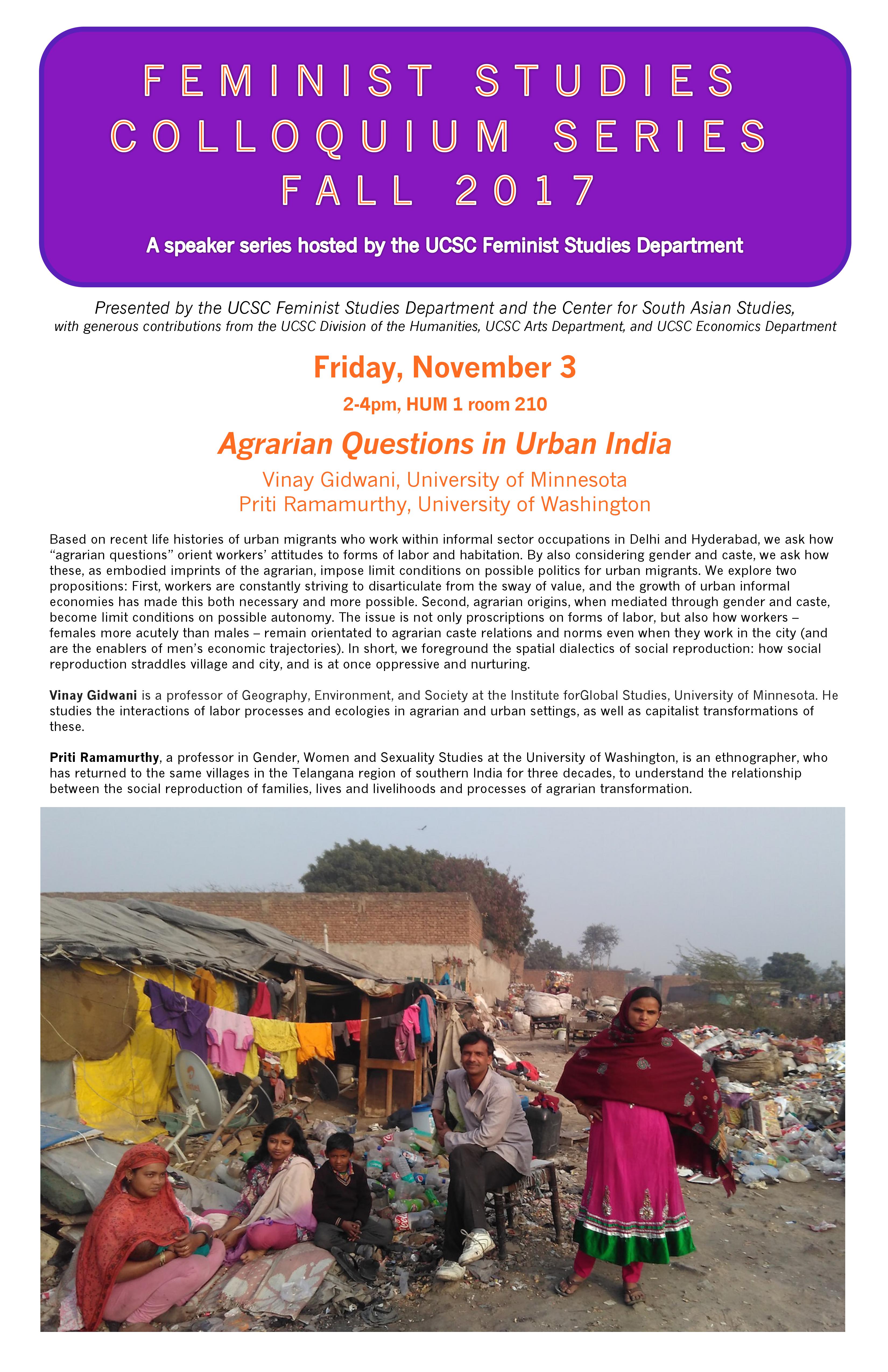Events

- This event has passed.

Feminist Studies Colloquium: “Agrarian Questions in Urban India”
November 3, 2017 @ 2:00 pm - 4:00 pm | Stevenson Fireside Lounge
Fall 2017 Feminist Studies Colloquium Series: “Agrarian Questions in Urban India”
Vinay Gidwani, University of Minnesota
Priti Ramamurthy, University of Washington
Based on recent life histories of urban migrants who work within informal sector occupations in Delhi and Hyderabad, we ask how “agrarian questions” orient workers’ attitudes to forms of labor and habitation. By also considering gender and caste, we ask how these, as embodied imprints of the agrarian, impose limit conditions on possible politics for urban migrants. We explore two propositions: First, workers are constantly striving to disarticulate from the sway of value, and the growth of urban informal economies has made this both necessary and more possible. Second, agrarian origins, when mediated through gender and caste, become limit conditions on possible autonomy. The issue is not only proscriptions on forms of labor, but also how workers – females more acutely than males – remain orientated to agrarian caste relations and norms even when they work in the city (and are the enablers of men’s economic trajectories). In short, we foreground the spatial dialectics of social reproduction: how social reproduction straddles village and city, and is at once oppressive and nurturing.
Vinay Gidwani is a professor of Geography, Environment, and Society at the Institute forGlobal Studies, University of Minnesota. He studies the interactions of labor processes and ecologies in agrarian and urban settings, as well as capitalist transformations of these.
Priti Ramamurthy, a professor in Gender, Women and Sexuality Studies at the University of Washington, is an ethnographer, who has returned to the same villages in the Telangana region of southern India for three decades, to understand the relationship between the social reproduction of families, lives and livelihoods and processes of agrarian transformation.
Presented by the UCSC Feminist Studies Department and the Center for South Asian Studies, with generous contributions from the UCSC Division of the Humanities, UCSC Arts Department, and UCSC Economics Department
